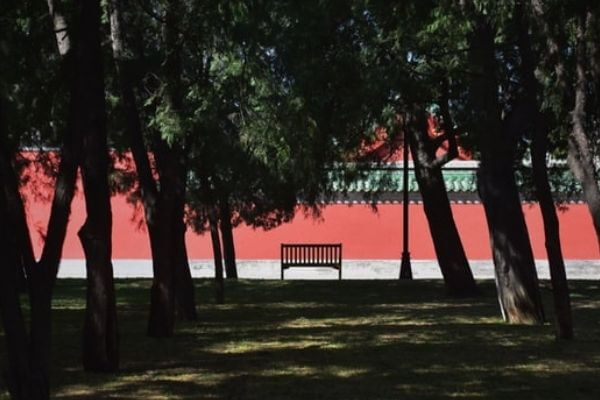
What do we talk about when we talk about Typical Cases issued by China’s Supreme People’s Court (SPC)?
We have introduced the case system in China in previous posts, and mentioned the Guiding Cases and Typical Cases issued by the SPC.
In terms of cases, issuing Guiding Cases is one of the statutory powers of the SPC authorized by the Organic Law of the People's Court. However, the SPC’s statutory powers do not involve the issuance of Typical Cases.
To be specific, the law permits the SPC to issue legal interpretation and Guiding Cases to provide standards for the application of laws in China. However, the law does not provide for the mechanism of Typical Cases, and therefore, such cases cannot provide standards for the application of laws as Guiding Cases do.
Under these circumstances, what are the functions of the Typical Cases issued by the SPC?
An article published in February 2021 titled “A Function Analysis of the Supreme People's Court’s Typical Cases with the "Typical" Title: Taking Typical Cases Related to the Belt and Road Initiative as a Sample” (《最高人民法院冠名典型案例的功能分析———以“一带一路”典型案例为样本》)provides an interesting analysis of this issue. The author of this article is Xiang Li (向力), an associate professor of Shandong University. The article was published in the “Studies in Law and Business”(法商研究) (Issue 2, 2021).
The author pointed out that the SPC issues Typical Cases for two purposes. One is to show how the courts implement public policies, and the second is to provide courts across the country with rules for adjudication (i.e. standards for the application of laws). However, the author also stated that the typical case failed to fully realize such purposes of the SPC.
Below are highlights of the author’s viewpoints.
I. What are the Typical Cases?
The SPC has been issuing Typical Cases for years. It often issues relevant judicial documents directly under the name of “XX Typical Cases”, which lists a series of cases in a specific field, such as “Typical Maritime Trial Cases” “Typical Cases of Ecological Environment Protection” or “Typical Cases Involving the Internet”.
So far, the SPC has issued 171 judicial documents about the Typical Cases and has mentioned more than 1000 cases.
For example, in the field of foreign-related commercial trials concerning the “Belt and Road Initiative” (BRI), the SPC successively issued two groups of Typical Cases related to the BRI in 2015 and 2017. There were eight cases in the first group of 2015, and ten cases in the second group of 2017.
This series of cases are directly related to the BRI, and therefore, the author believed that studying these cases may help to observe the relationship between Typical Cases and public policies.
The author sorted out the judicial documents containing the word “typical cases” issued by the SPC up to now, and found that the SPC’s aims of publishing the Typical Cases include: implementing public policies; implementing educational activities about the rule of law; conducting case guidance; demonstrating work achievements; conducting training; sharing systematic internal resources; and improving judicial transparency.
Among them, implementing public policies and conducting case guidance (i.e. demonstrating adjudication rules by cases) are the main functions.
II. Functions of the Typical Cases: Implementing Public Policies
An earlier post of CJO has mentioned that Chinese courts pursue political effects, legal effects, and social effects. The political effects require the judgments of the courts conforming with the public policies at that time.
The author held that the Typical Cases are one of the SPC’s tools to implement the public policy.
We observe it taking the examples of Typical Cases related to the BRI.
China’s BRI does not set specific goals for judicial operation among countries along the Belt and Road, nor does it set specific requirements on how Chinese courts should provide judicial services and safeguard for the Initiative.
However, the BRI is China’s most important public policy in the diplomatic field in the past 10 years. Government departments and local governments at all levels in China are taking action to show that they are actively implementing the policy and have issued thousands of documents. The SPC also needs to respond positively to this public policy.
Taking the Typical Cases of the BRI judicial safeguard as an example, in fact, the SPC is selecting cases that effective judgments have been rendered to indicate its active implementation of the public policy of the BRI.
Nevertheless, the author held that the fact that the SPC did not continuously publish Typical Cases related to the BRI indicates the inactive attitude or discontinuity of the SPC for implementing the Initiative.
III. Functions of the Typical Cases: Providing Adjudication Rules
As mentioned in the previous posts of CJO, the SPC has built the Similar Case System, which requires courts at all levels to refer to the corresponding Similar Cases. To this end, the SPC has established an authoritative system for Similar Cases, where the Guiding Cases rank the top, followed by the Typical Cases.
However, the author held that not all Typical Cases may function as adjudication rules like Guiding Cases.
This is because, firstly, the court opinions vary among the Typical Cases; and secondly, the rules extracted from the same case by the SPC on different occasions focus on different aspects. Therefore, the local courts are hard to distill uniform rules from the Typical Cases.
IV. Our Comments
We agree with the author's view to the extent that Typical Cases fail to play the role of providing adjudication rules. In fact, even the Guiding Cases have not been able to fully play such a role. This is related to the fact that Chinese judges are accustomed to applying statutory laws, instead of referring to Guiding Cases to support the courts’ holding.
However, we disagree with the author’s opinion that the Typical Cases failed to help to implement public policies. At least, the Typical Cases related to the BRI have indeed promoted the Chinese local courts to treat international civil and commercial cases on comity and in a manner that is more open and more focused on judicial assistance.
For example, the cases involving the recognition and enforcement of Singapore judgments by Chinese courts in the Typical Cases of the BRI encouraged the Chinese courts to be more proactive in recognizing and enforcing foreign judgments, and also promoted the signing of China-Singapore Memorandum of Guidance on Recognition and Enforcement of Money Judgments.
Contributors: Guodong Du 杜国栋 , Meng Yu 余萌









